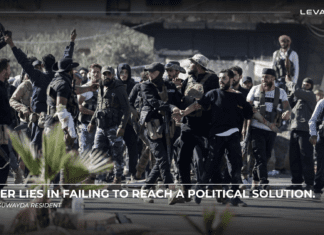
In recent weeks, Turkish President Recep Tayyip Erdogan has publicly expressed his desire for rapprochement with the Syrian regime. However, these overtures have been met with a conspicuous silence from Bashar al-Assad, who instead swiftly extended congratulations to the newly elected Iranian president.
This move highlights Assad’s focus on maintaining strong ties with Iran, and maintaining aloofness, even as Turkey signals a potential shift in its Syrian policy. Meanwhile, the US maintains its cautious stance, emphasizing the need for tangible progress in Syria before considering normalization.
Outlets close to the regime have stated that initial meetings will not take place on Turkish soil and agreements on guarantees for the withdrawal of Turkish troops will make the remaining issues straightforward and uncomplicated. Showing the regime is steadfast not to meet without the preconditions it had mentioned in previous years.
Turkey’s evolving approach to Syria has sparked considerable debate. International relations researcher Mahmoud Alloush provided insights during an appearance on Syria TV’s Syria Today program. Alloush noted that “a group of factors contributed to a remarkable rapprochement between the regime and Turkey, especially Russian-Turkish interactions.” He observed that these relations have cooled over the past year, leading to a renewed Russian effort to mediate Turkish-Syrian dialogue.
Alloush emphasized that Russia stands to gain significantly from a rapprochement. “Whenever Russia can push Turkey to continue its efforts to end the conflict in Syria, that will be a major victory for Russian policy,” he stated. This shift suggests that Turkey might pursue a different path, focusing on reconciliation between the Syrian regime and the opposition, thereby redefining its role in the Syrian conflict.
Syrian journalist and political analyst Ahmad Zaidan offers a critical perspective on Assad’s silence. Zaidan argues that Assad’s refusal to engage with Erdogan’s overtures reflects his longstanding strategy of manipulating regional dynamics to maintain power. He points out that Syria, currently home to ten foreign armies and over 66 armed sectarian militias, is a battleground for multiple international interests. This complexity makes it challenging for any single country to decisively influence Syria’s future.
Zaidan emphasizes that past attempts by various countries to rehabilitate the Syrian regime by distancing it from Iran have failed. Since 2017, nations like the UAE and Jordan have tried to entice Assad with promises of normalization, only to find that his regime’s ties to Iran are too deeply entrenched. These efforts, he asserts, were ultimately futile, as Assad continued to strengthen his relationship with Tehran while offering superficial gestures to placate his interlocutors.
Meanwhile, the US has maintained a watchful stance regarding Turkish moves towards normalization with the Assad regime. A US State Department official, responding to inquiries from Enab Baladi, reiterated Washington’s concerns about humanitarian issues and the importance of maintaining aid flows across Syria’s borders. The official emphasized that any cooperation with the Syrian regime must prioritize improving humanitarian conditions, human rights, and security for Syrians.
The official further noted that the US continues to work closely with Turkey on a wide range of issues, including combating terrorism and the fight against ISIS. Despite Erdogan’s repeated statements about seeking a meeting with Assad, Washington’s position remains firm: normalization with the Assad regime is contingent upon substantial progress toward a political solution to Syria’s ongoing conflict.
While Turkey has internal considerations, including economic challenges and the presence of Syrian refugees, its geopolitical maneuvering is intricately linked to broader regional and international factors. As Erdogan navigates these complexities, the role of Russia and Iran remains pivotal, while the US continues to exert its influence through diplomatic channels.








